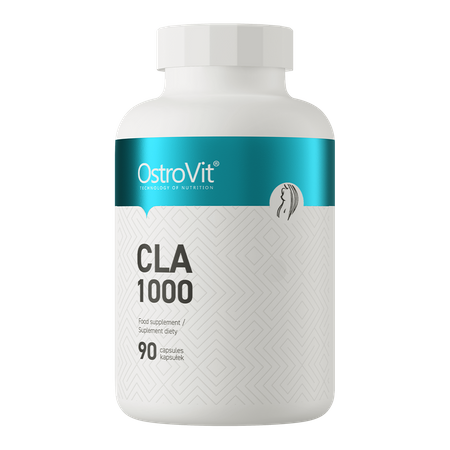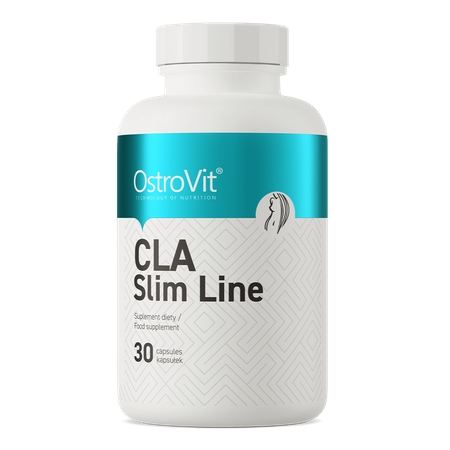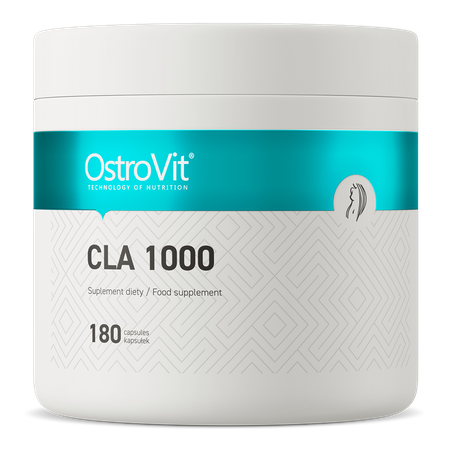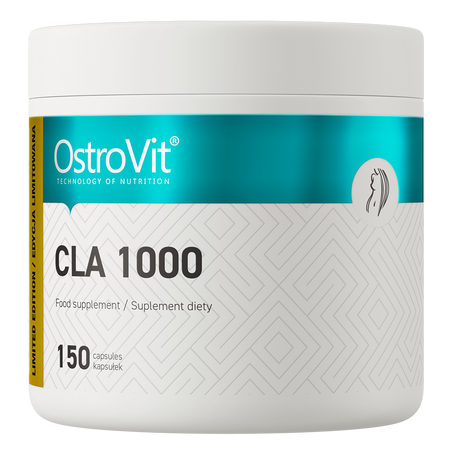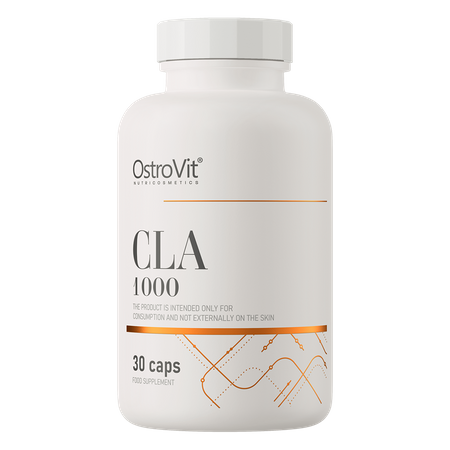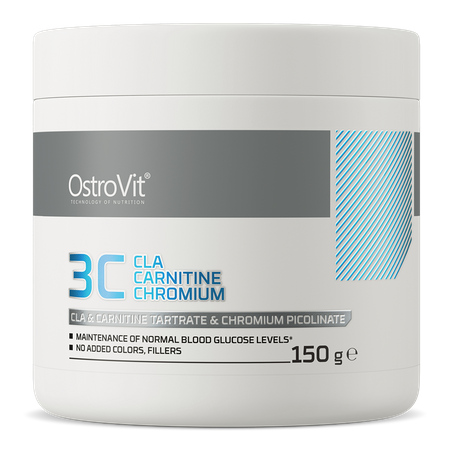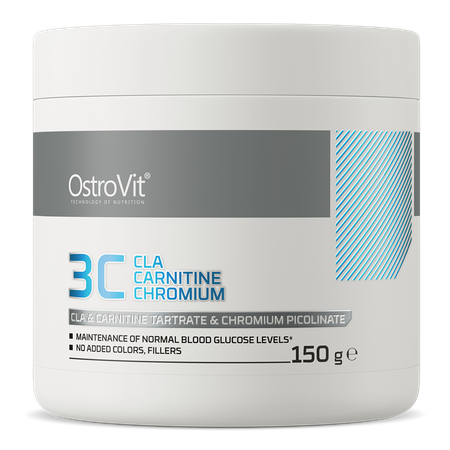CLA
CLA, or conjugated linoleic acid, is a derivative of linoleic acid. It is a polyunsaturated fatty acid that the body cannot synthesize on its own, which is why it must be delivered to the body along with the daily menu or in the form of dietary supplements.
The compound can positively affect the immune system, as well as cholesterol and blood glucose levels. In addition, CLA can support the weight loss process.
CLA – what is it?
CLA is a conjugated linoleic acid, which has 18 carbon atoms and two conjugated double bonds in its chain.
Conjugated linoleic acid differs from linoleic acid in that its double bonds are isolated by only one single bond. This is a rare property in nature.
CLA is an unsaturated fatty acid of animal origin, which must be supplied to the body with food, because the body is not able to synthesize it on its own. It can occur in both cis and trans configurations. However, it should not be equated with hydrogenated vegetable fats. In the case of CLA, the trans configuration arises naturally and has no negative effect on the human body.
CLA - sources in food
The main sources of conjugated linoleic acid include meat and animal products such as milk, yoghurt and cheese from ruminants such as cows, sheep and goats.
Although CLA in our diet comes mainly from cow's milk and dairy products and beef, the highest concentration of conjugated linoleic acid can be observed in sheep's milk. This polyunsaturated fatty acid can also be found in eggs.
CLA content in animal meat and animal products is significantly influenced by the way of breeding and feeding, as well as the breed.
Properties of conjugated linoleic acid
Conjugated linoleic acid is attributed a wide spectrum of action.
CLA is considered a powerful antioxidant, which can limit the formation of free radicals and reduce oxidative stress, and thus may delay the aging process of the body.
In addition, CLA may affect the synthesis of eicosanoids, and at the same time may support the immune system. Conjugated linoleic acid may also reduce inflammation and allergic reactions, as well as have bacteriostatic and antiviral effects.
CLA can also affect the regulation of cholesterol levels and lowering blood pressure. In addition, conjugated linoleic acid can have a positive effect on bone mineralization.
This unsaturated fatty acid can also stimulate metabolism and accelerate the rate of lipolysis, contributing to the reduction of body fat. It can also inhibit the deposition of triglycerides in adipose tissue cells.
CLA may also increase the sensitivity of cells to insulin and regulate blood glucose levels. In addition, conjugated linoleic acid may have an anabolic effect and thus may contribute to the increase of muscle mass.
Demand on CLA
In accordance with the Nutrition Standards developed by the Food and Nutrition Institute, the reference value of the daily intake of conjugated linoleic acid has not been estimated.
Existing data suggest not to exceed a dose of 3 g CLA per day. Lower values can positively affect the human body.
Conjugated linoleic acid - for whom?
The use of dietary supplements rich in CLA can be a good solution for people who want to reduce body fat, as well as for those who want to strengthen the body's immunity, regulate blood glucose levels and improve lipid metabolism.
It is also recommended for people exposed to long-term stress and hard physical work, because due to its antioxidant properties, CLA can reduce oxidative stress and support the fight against free radicals.
CLA - side effects and contraindications
Conjugated linoleic acid is considered as a safe compund.
Taking high doses of CLA can contribute to side effects such as:
- nausea,
- diarrhea,
- vomiting
- weakness of the body.
Long-term, excessive supply of CLA may contribute to fatty liver.
To avoid the occurrence of undesirable symptoms and harmful consequences of taking CLA supplements, it is worth following the manufacturer's instructions placed on the product packaging.
Preparations with conjugated linoleic acid should be considered by people struggling with blood clotting problems, because this compound may have blood-thinning properties.

